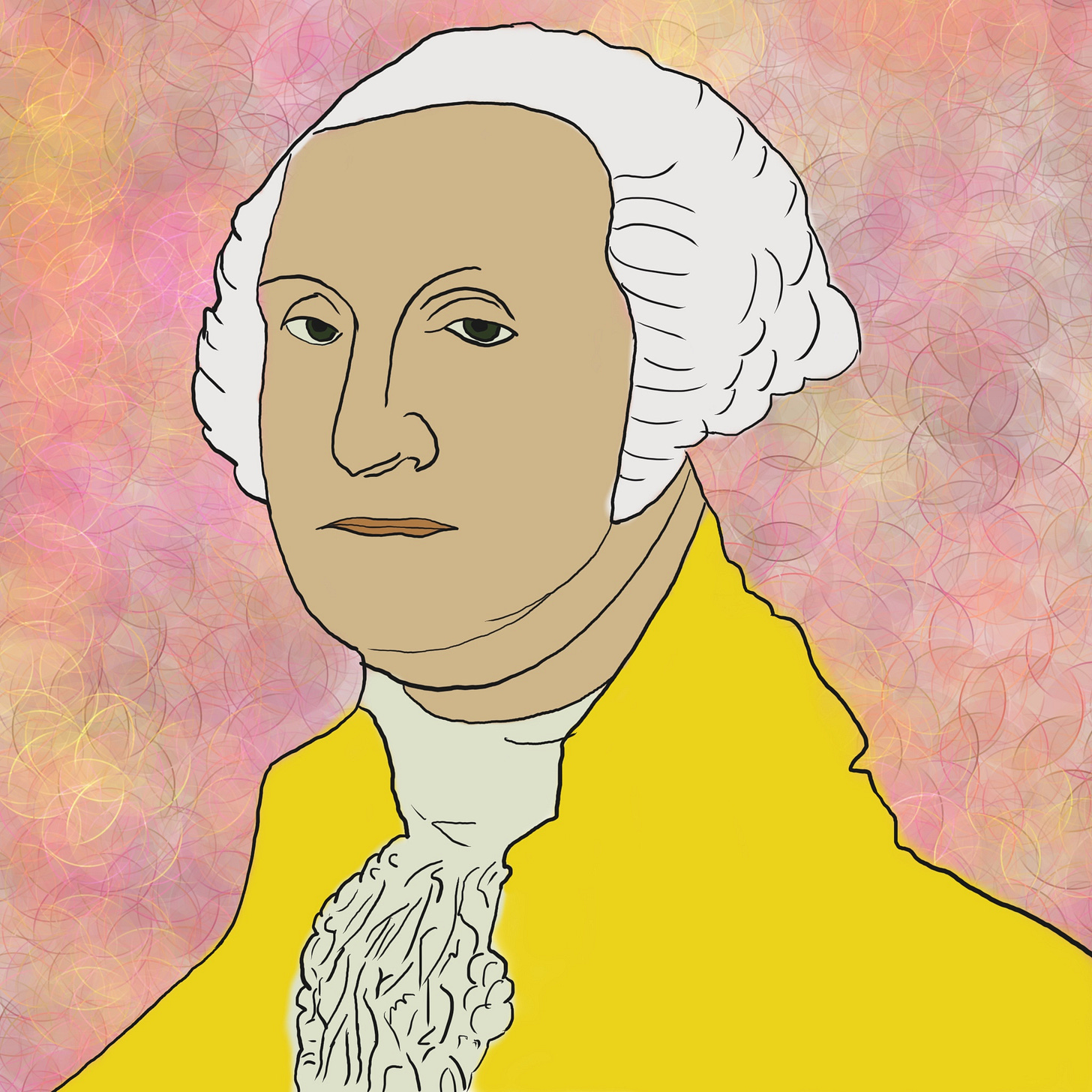Have You Found Your George Washington?
What the Founding Fathers Can Teach You About Getting Promoted
I love learning about history because a good history book can tell you how the world really works. This is especially important if you want to accelerate your career growth. In no other genre of learning are there such strong incentives to obscure what’s really going on and why, but well-researched history can peel back those layers of misdirection.
Among historical topics, the founding of the US has some great stories. I’ve read quite a few books on the subject, and so I was thrilled when Lin Manuel Miranda combined both my love of rap and history in his musical Hamilton, released in 2015.
For those that haven’t seen the musical, it follows the story of Alexander Hamilton who fought in the revolutionary war and eventually became the first secretery of the treasury. His peers included a who’s-who of American politicians: James Madison, Thomas Jefferson, and Benjamin Franklin to name just a few.
By all accounts, Hamilton was unusually brilliant, hard-working, and ambitious. But so were hundreds of thousands of young men of his generation. Plus, he had enormous disadvantages. He was born poor. His father abandoned his family. His mother died while he was young. The family member who took over his care committed suicide. He arrived in the country penniless, with no family and almost no connections to recommend him.
So how did he come from the humblest of beginnings to creating the most influential banking system in human history and having his face printed on our currency?
One man: George Washington.
A Historical Pattern
Over the course of several decades, George Washington’s sponsorship opened critical doors for Hamilton. Washington gave him entre to meet his wealthy future spouse, become a commander in the revolutionary army, and occupy several critical cabinet and political appointments.
So why did Washington go so far out of his way to support and nurture the ambitions of the unpolished, bastard immigrant? We’ll never know the whole story, but what we do know suggests that Washington just liked him.
Think about that for a moment. George Washington, the founding father of the US democratic experiment and one of the wealthiest humans alive at the time gave another person the opportunity to shape the entire world financial system because, at the end of the day, he liked hanging out with him.
Of course, this wasn’t a surface-level connection. The two men worked side by side in deplorable conditions for years during the revolutionary war. They were starved, frozen, and shot at together. They agreed on many key topics, gained one another’s trust, and struggled for the same ends.
Their working partnership was exceptionally deep, but I think those sorts of partnerships are the rule rather than the exception in organizations. We all want to be a part of a cohesive team, doing great things, with people we respect and admire.
Those with power, influence, and capital seek those connections too, but their need is even more difficult to meet. They have to filter for sycophants who are always trying to gain their favor by faking that most critical ingredient: real human connection.
Finding someone that they want to spend time with that is also capable of repeatedly getting things done well is so rare that when it happens, it’s a small price to pay to sponsor and give them opportunities.
How To Find Your George Washington
Searching, confirming, and developing a sponsorship relationship is anything but straight-forward, but here are a few steps I’ve found that can help:
Put relationships first. Projects, market conditions, and release dates come and go. A project can’t sponsor your career, but a person can. Make sure that you invest in getting to know your bosses, peers, and reports as people first and foremost. Be open and clear with them that your working relationship comes first.
Be vulnerable. You can’t form meaningful relationships if you aren’t willing to be authentic. Some people find it off putting to cut the chit chat and go straight to real topics, but in my experience, those people probably weren’t going to sponsor you anyways. Don’t be weird, but talk less about the weather and your commute and more about topics you actually care about.
Be interesting. You don’t have to be a world traveler or famous author to be interesting to others. Demonstrate curiosity. Read a book. Learn a hobby. Memorize some work-appropriate jokes. Take a course. Fix something broken in your apartment. Start a blog. The more experience and overlap you have with others, the higher the probability you’ll connect with others beyond the superficial water cooler discussions.
None of these tactics guarantee you’ll find someone who earnestly believes in you and has the power to give you important opportunities. But they each increase your odds.
And at the end of the day, you only need to find one George Washington to have a huge impact on the world.



